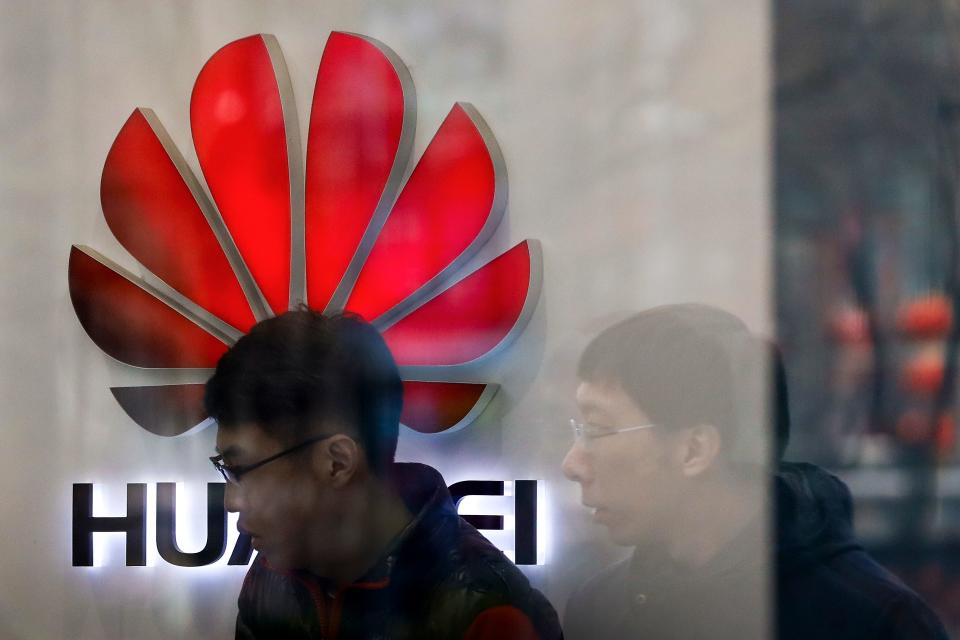President Donald Trump is correct on China's Huawei

The Trump administration does many things in foreign policy that are head-scratching, if not downright alarming. Its aggressive posture toward the Chinese technology equipment maker Huawei Technologies Co. is not one of them.
Recent Justice Department lawsuits against the company — one alleging various financial crimes, the other focused on intellectual property theft — appear well-founded.
The State Department’s ongoing (though apparently not particularly successful) efforts to persuade foreign nations not to build out their internet infrastructure with Huawei equipment is even sounder.
While the U.S. government’s spat with a single China-based company might seem like a small matter, it is not. This one company symbolizes the challenges presented by China’s increasing global clout: its efforts to appropriate Western technology; its use of telecom networks for both espionage and censorship; and, ultimately, its ongoing effort to extend autocratic power.

HUAWEI: Politicizing cybersecurity is a losing proposition for consumers
Founded in 1987 by a former People’s Liberation Army engineer, Huawei (pronounced Wah-way) has long received special treatment from the Chinese government and, likely, subsidies that have allowed it to undercut competitors and become the world’s largest maker of internet equipment (and the second largest maker of cellphones behind Samsung).
The company has spent decades in a mad dash to catch up with competitors. In 2003, Huawei admitted to stealing Cisco Systems' source code and has been accused of such broad-based theft that it once copied a manual right down to the typos. Motorola has accused Huawei of recruiting its workers to pilfer property.
The suit filed by the Justice Department alleges a years-long campaign to reward Huawei workers for acquiring technology by whatever means. It focuses heavily on yet another instance of theft, involving a Huawei worker who took a T-Mobile robot from a lab in Bellevue, Washington, photographed and measured it, then returned it in what the company said was a mistake. The robot, nicknamed “Tappy,” is designed to test cellphones by mimicking the way human hands and fingers interact with them.
The most troubling aspect of Huawei, however, is not its penchant for pilferage but its potential role in China’s global assault on democracy. China’s domestic internet is a walled garden that only allows people to access sanctioned sites. Huawei plays a part in that. China is also a kind of Wild West where visitors’ computers and cellphones are routinely hacked. Huawei probably plays a role in that, too.
If its equipment is widely deployed around the world, the Chinese government would be in a position to eavesdrop, by having Huawei build surveillance devices into its hardware and software. It might also engage in a kind of mild censorship by slowing traffic to sites it does not like. It could even launch cyberattacks.
Huawei calls itself employee-owned, but its finances are secret, and telecom executives widely assume that it receives huge subsidies from a government that looks at it as a strategic asset.
China’s widespread practice of undercutting companies with state-owned or state-subsidized companies of its own represents a violation of the principles of free trade that were instituted after World War II.
When this practice takes place in areas of critical infrastructure, it should be seen for what it is — a threat to democratic governance the world over.
USA TODAY's editorial opinions are decided by its Editorial Board, separate from the news staff. Most editorials are coupled with an opposing view — a unique USA TODAY feature.
To read more editorials, go to the Opinion front page or sign up for the daily Opinion email newsletter. To respond to this editorial, submit a comment to letters@usatoday.com.
If you can't see this reader poll, please refresh your page.
This article originally appeared on USA TODAY: President Donald Trump is correct on China's Huawei

